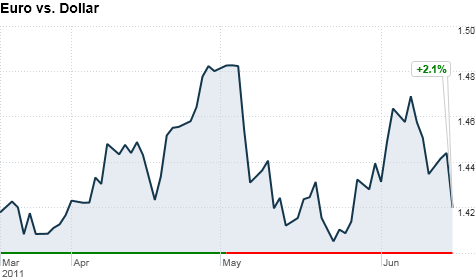Via Mediaite, a screechy follow-up on “Caylee’s Law,” which I touched on in yesterday’s post about the deep, deep thoughts of the Anthony jury. This could have been an interesting segment: See, for example, this survey in Salon of laws passed in response to specific crimes and how they’ve fared in practice. How often will police and prosecutors need Caylee’s Law? Will it do more harm than good by exposing the innocent to unfair charges? Shouldn’t there be a cooling-off period of reflection before writing legislation in response to an infuriating event? (“Yes!” say Patriot Act opponents.) Good questions all, but we never get to them because Shep’s too busy trying to parse whether Caylee Anthony was ever really “missing” when she was almost certainly dead from the start and mommy dearest knew it. Except … mommy dearest insisted that she didn’t know it and she got 12 people to kinda sorta believe her on that. From the jury’s perspective, Casey did think Caylee was genuinely missing and just didn’t care enough to report it. That’s what the law’s designed to address. Would have come in handy once all the other charges fell apart, no?
Maybe all Shep’s saying is that it’s unlikely the law will deter anyone. Any innocent parent will report their kid missing the instant they know about it whereas any guilty parent who’s responsible for their kid’s disappearance either won’t report it, notwithstanding Caylee’s Law, or will report it only after they think the incriminating evidence is gone. Fair enough, but deterrence isn’t the point. The point is to give prosecutors a fallback charge in cases like Anthony’s where there’s good reason to believe that a parent’s killed or abducted their kid but not enough evidence to convict them of one of those more serious crimes. How often that unusual set of circumstances obtains, I don’t know, but unless you think we’re in for a wave of future child killers refusing to call the police because they saw how that strategy worked for Casey, the effect will likely be negligible.
Oh — since we’re on the subject, you’ll be pleased to know that the first million-dollar interview offer has been withdrawn by “The Jerry Springer Show” after an immediate backlash. That’s how toxic she is. Too toxic for … Jerry Springer.
Maybe all Shep’s saying is that it’s unlikely the law will deter anyone. Any innocent parent will report their kid missing the instant they know about it whereas any guilty parent who’s responsible for their kid’s disappearance either won’t report it, notwithstanding Caylee’s Law, or will report it only after they think the incriminating evidence is gone. Fair enough, but deterrence isn’t the point. The point is to give prosecutors a fallback charge in cases like Anthony’s where there’s good reason to believe that a parent’s killed or abducted their kid but not enough evidence to convict them of one of those more serious crimes. How often that unusual set of circumstances obtains, I don’t know, but unless you think we’re in for a wave of future child killers refusing to call the police because they saw how that strategy worked for Casey, the effect will likely be negligible.
Oh — since we’re on the subject, you’ll be pleased to know that the first million-dollar interview offer has been withdrawn by “The Jerry Springer Show” after an immediate backlash. That’s how toxic she is. Too toxic for … Jerry Springer.















